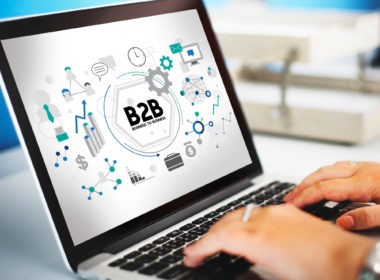Customers like having self-service options, but not all businesses are providing enough of them. According to NICE’s 2022 Digital-First Customer Experience Report, 81% of customers expressed that they want more self-service options, but only 40% of businesses think they offer enough self-service options.
One way to provide a self-service option is with a client portal. This article discusses:
- What a client portal is.
- The different types of self-service options.
- The benefits of a client portal.
- How to create secure client portals.
What is a Client Portal?
A client portal, also called a customer portal, is a digital gateway where clients can log in to access the information they need or perform certain actions, like viewing an account balance, paying a bill or logging a service request.
Most people are familiar with using client portals in the finance industry, including the banking, investment and insurance sectors. Today, client portals are an important part of the customer experience in many industries.
Client portals are also used in a business-to-business (B2B) context. For example, suppliers may have a self-service portal for their clients to request quotes, order stock, and pay invoices.
Why Customers Prefer Self-service
Think about how long it takes you to get help from a customer support desk. You dial the number, navigate the voice-automated menu, and finally get through to an agent to explain your problem. It’s a time-consuming process, and the more complex your query, the longer it will take. If you’ve sent an email, it could take several days to receive a reply.
Self-service allows customers to solve problems themselves without jumping through the hoops you usually do when contacting a company. It’s convenient and saves time.
It also avoids the frustration that comes with friction that may occur in the process, like long call wait times, technological glitches or being passed from one department or person to another.
Friction can cause you to lose customers. According to a survey by Higher Logic, 61% of customers will consider switching to a competitor after a bad customer experience, and 68% will go on to tell their friends and family about it. So not only could you lose current customers, but it could also tarnish your brand image.
The Different Types of Customer Self-service Options
Client portals are one type of self-service channel ideal for existing customers who want to access or update information. But there are other types of self-service channels you can provide. These can include:
- A knowledge base/resource library. The statistics show that a whopping 91% of customers would use a knowledge base if it were available. A knowledge base is a central information hub customers can go to for answers to questions. It contains resources such as articles, documents, policies, videos, reports, guides, e-books and white papers. You can use knowledge base software to easily organize and manage these resources, ensuring that information is easily accessible and searchable.
- Frequently asked questions (FAQs). A FAQ page can answer the common questions you receive from customers.
- Chatbots. Chatbots have grown in popularity. Sixty-seven percent of customers say they would use an online chatbot rather than wait for a human agent. Nearly 70% said their experience with a chatbot was positive.
- Community groups and discussion forums. Community forums are a great way for customers to raise issues that other customers can provide input on. If you establish a customer discussion forum, the moderator should actively screen chats and address questions the community can’t answer timeously.
- Tutorials. Instruction manuals or video tutorials are a great way to educate customers on how your business operates or how your service or product functions.
Most customers expect at least one type of self-service, but you’ll likely elevate the customer experience with a mix of self-service options. Some client portal software allows you to include other types of self-service, such as a knowledge base or community forums.
The Benefits of a Client Portal
Now that you understand how a client portal can benefit your customers, let’s look at how it can benefit your business.
1. Resolves queries faster
Most people try to find answers and solutions to their questions and problems themselves before contacting a company. Many also prefer to perform certain tasks like updating their personal details or renewing subscriptions via a client portal. Being able to solve minor problems themselves results in higher levels of customer satisfaction.
2. Decreases the burden on your help desk
If customers can turn to self-service channels first, you’ll have fewer queries going to the help desk. For example, troubleshooting guides can help customers:
- self-diagnose technical problems
- assemble products or navigate services
- fix errors
If customers can’t find a solution to their problem, their next step is to contact your help center. Fewer queries coming into your help desk lightens the burden on your support staff, especially during peak periods.
3. Saves time and increases productivity
Call center agents spend, on average, 31 minutes talking to customers and another 10 minutes on post-call wrap-up. By using virtual customer assistant (VCA) technology, you can drastically slash the time spent on calls.
According to Gartner, organizations report a reduction of up to 70% in call, chat and email inquiries after implementing a virtual customer assistant (VCA) like a chatbot or digital information kiosk.
4. Offers 24-hour accessibility
Customers want to be able to access information or perform certain tasks when it’s convenient to them, which may not be during office hours. It may be late at night or in the morning before they go to work.
With a client portal, customers can sign in to their account any time of the day or night and from anywhere in the world. This level of accessibility can be a game-changer for your business.
5. Increases sales
You can use your client portal as part of your marketing strategy to:
- promote new products or services
- cross- and upsell similar or related products or services
- offer discounts and rewards to high-value or long-standing customers
Personalized marketing based on customer’s buying history and preferences can lead to higher conversion rates and increased sales.
6. Reduces customer churn
When customers are satisfied with your service, they will likely continue doing business with you. You’ll also gain an advantage over competitors who don’t have sufficient self-service options. So, not only will you reduce customer churn, but you may attract customers from other brands that don’t offer many self-service options.
7. Improves cash flow
Cash flow is the lifeblood of your business. Late payments can put your cash flow into the negative. One benefit of a customer portal is that it allows customers to view account balances and settle invoices immediately and at any time during the month.
Set up automated notifications to alert customers to outstanding invoices and prompt them to make a payment. Accepting payments via a client portal means you can get paid faster and keep your cash flow buoyant.
How To Ensure Client Portals Are Secure
Choose client portal software with strong security features, such as Secure Sockets Layer (SSL) encryption. This, combined with your company website’s firewalls and virus and hacker protection protocols, should keep customer’s information and activities on the portal safe.
For an extra layer of protection, you can implement the following security features:
- Strong passwords that include a mix of upper and lowercase letters, numbers and special characters.
- Install the CAPTCHA feature to prevent bots and automated hacking software from breaching the system.
- Two-factor authentication. For example, when signing in on their PC, customers must verify their identity on the mobile app.
- Restrict the number of login attempts. This is an important feature if your client data contains confidential, sensitive or financial information.
A strongly secured entry point will make it harder for hackers to breach. These security features should be embedded in the software so that it’s active across all platforms and devices, like desktop computers and mobile devices.
Why You Still Need Human Customer Support Agents
While self-service is what many customers want, it should never be a dead end. If customers can’t find what they’re looking for, they usually turn to a human representative for help. If one isn’t available or they can’t figure out how to reach one, they’ll become frustrated.
Frustrated customers will complain to others about your poor service.
Frustrated customers will likely stop doing business with you and start doing business with your competitor.
Once you’ve lost a customer, it’s hard to get them back.
So, while self-service is an excellent way to create a positive customer experience, it isn’t a replacement for live agents. There should always be a way for customers to contact a human agent when needed.
Key Takeaways
Customers today will attempt to solve their problems themselves before contacting a customer support center. That’s because self-service channels, like client portals, are convenient and save time.
Client portals can also offer many benefits to your business that will ultimately improve your customer service and enhance your brand image. This, in turn, can increase customer retention and boost sales.
Client portals are meant to complement, not replace, the human element. Striking the balance between virtual customer assistants and real-world agents is the key to a well-rounded customer experience.












